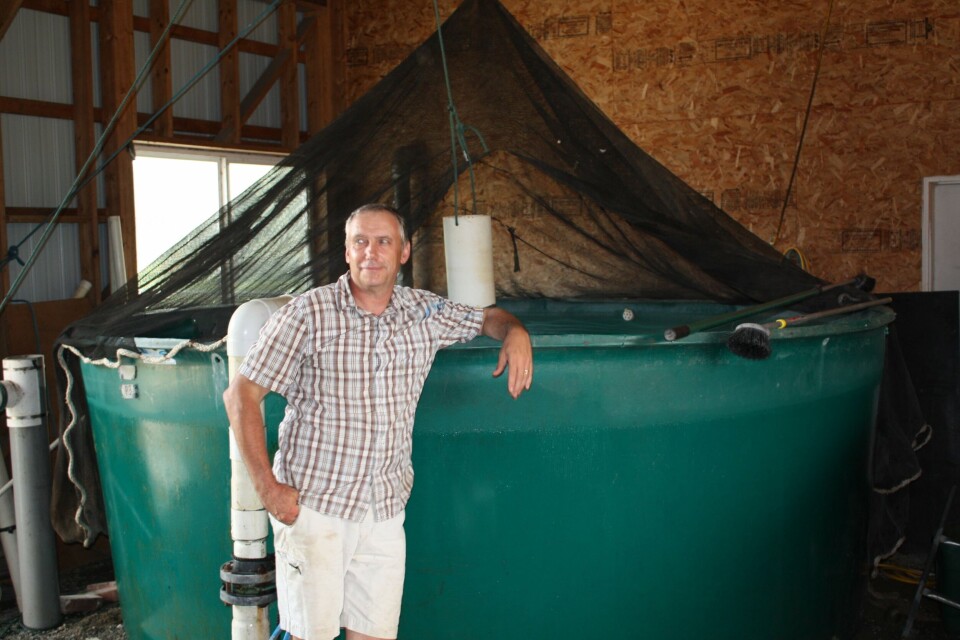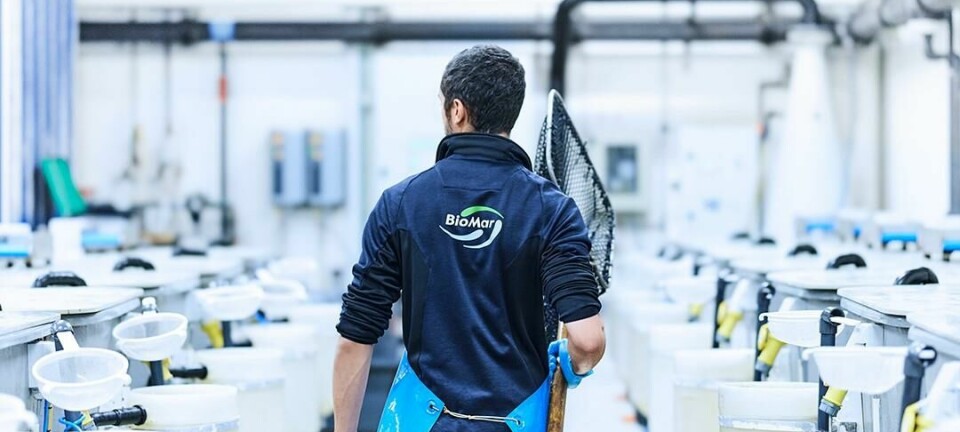
Land-based fish farms serving niche market
While the conventional salmon farmers in British Columbia and Washington State have yet to convince some of the more fickle segments of the public that their methods of producing fish in floating net pens is a truly sustainable practice, a few operations have been pursuing this small market segment by growing salmon in tanks on land. And more are in the planning stages.
In Washington State, the AqusSeed Corporation under the leadership of former Norwegian Per Heggelund has added farmed coho salmon to his list of products for sale under the SweetSpring label, while the main business of this company has been the sale of coho eggs to the Chilean salmon farming industry. AquaSeed has made an arrangement with one of the grocery store chains in British Columbia to market his 90 tonnes of “eco-salmon” in the SaveOnFoods stores, similar to a program that the Thrifty’s stores did some years ago with fish produced in a tank farm on Vancouver Island. That initiative came to a halt when fish prices weren’t high enough to cover the costs.
Up in the Fraser Valley behind Vancouver there is another small operation producing not only coho salmon, but also crayfish and various plant crops like watercress, wasabi and a range of flowers. The Swift Aquaculture family farm was featured in an article by Vancouver Sun journalist Derrick Penner today, where Bruce Swift explains that “..being able to sell the fish as a niche products allows him to command a bit of a premium price for the coho salmon”. Mr. Swift used to farm fish in pens in the ocean, and he is still comfortable with that activity, but he is now pursuing an integrated method of growing salmon, along with the use of the waste materials produced by the fish. “It has nothing to do with the controversy (over open-ocean salmon farming) or anything,” Swift said to the Sun. “If the issues weren’t there, we would still be doing this”.
On the north end of Vancouver Island a local First Nation just received government funding to design a land-based pilot farm for the production of Atlantic and coho salmon. The Namgis Band plans to produce some 175 tonnes during the initial phases, Chief Bill Cranmer told FishfarmingXpert. If this proves successful, the Band plans to escalate production significantly.
A fourth project is also in the planning stages, where Marine Harvest, the largest producer of farmed salmon in B.C., is planning to establish a similar, land-based pilot project aimed at the determination of costs associated with this technology. A search for a Project Manager was launched earlier this year, with an announcement expected in the near future. Marine Harvest conducted an experiment using a set of floating canvas bags some years ago, and compared the performance and costs with those of a conventional net pen operation located at the same site. While biological results were similar, the cost of production in the “closed” bag system was higher by some ~26%.






















































